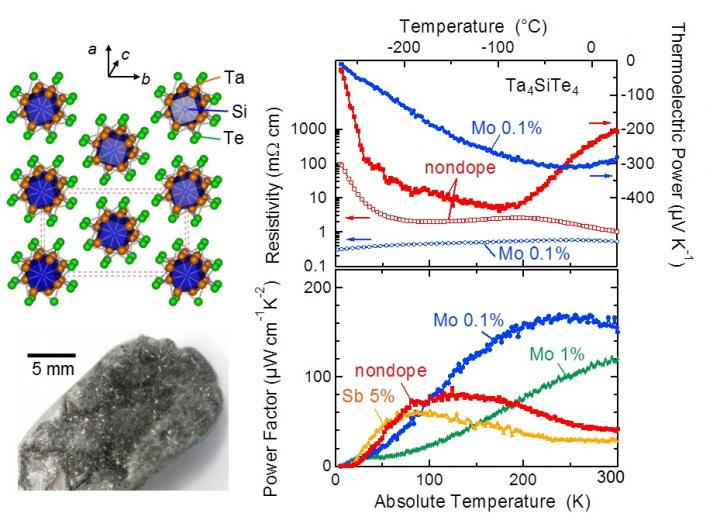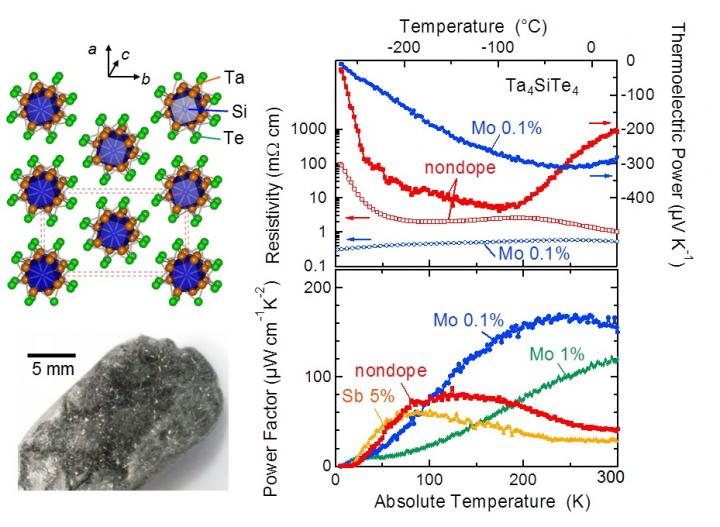
Credit: Yoshihiko Okamoto
Nagoya, Japan- Thermoelectric cooling is a solid-state refrigeration process where the heat in an electrically conductive material is transferred using the material's own conduction electrons without any need for the gaseous coolants, such as chlorofluorocarbons, that are used in conventional refrigeration. Coolers based on thermoelectric technology can be scaled down in size without changing their thermal-to-electrical energy conversion efficiency and this is a major advantage for localized cooling of tiny electronic devices. This effect is already used for temperature control in devices such as infrared sensors and laser diodes, and has also been used to provide low-temperature refrigeration for cryogenic electronic devices like superconducting sensors.
However, the lack of materials with suitable thermoelectric efficiency for practical cooling applications at temperatures below 250 K (approximately -23°C) has driven researchers at Nagoya University to look at the effectiveness of new compounds for truly low-temperature applications.
"We studied the thermoelectric properties of whisker-like crystals composed of a compound of tantalum, silicon and tellurium," says corresponding author Yoshihiko Okamoto from Nagoya University's Department of Applied Physics. "These crystals produced very high thermoelectric powers over a wide temperature range, from the cryogenic level of 50 K (which is around -223°C) up to room temperature, but still maintained the low electrical resistivity that is needed for practical cooling applications." The samples that were grown for the experiments included pure Ta4SiTe4 and other crystals that were chemically doped with low levels of molybdenum and antimony.
Various material properties were measured for the samples, including thermoelectric power, electrical resistivity, and thermal conductivity, to compare the effects of the two dopants on their thermoelectric characteristics. "We measured a very high thermoelectric power factor at an optimum temperature of 130 K," adds Okamoto. "However, this optimum temperature could be controlled over a very broad range by varying the chemical doping, and indicates that these crystals are suitable for practical low-temperature use."
Addition of as little as 0.1% molybdenum doping caused the resistivity of the telluride-type crystals to decrease dramatically at low temperatures, while they also demonstrated high thermoelectric powers that were closely related to the strongly one-dimensional electronic structures of the materials. The power factors of the crystals at room temperature greatly exceeded the corresponding values of the conventional Bi2Te3-based alloys that are commonly used in thermoelectric applications, and these crystals thus represent a highly promising route towards the development of high-performance thermoelectric cooling solutions at very low temperatures.
The article, "Large thermoelectric power factor at low temperatures in one-dimensional telluride Ta4SiTe4," was published in Applied Physics Letters at DOI: 10.1063/1.4982623.
###
Media Contact
Koomi Sung
[email protected]
@NU__Research
http://www.nagoya-u.ac.jp/en/
############
Story Source: Materials provided by Scienmag





